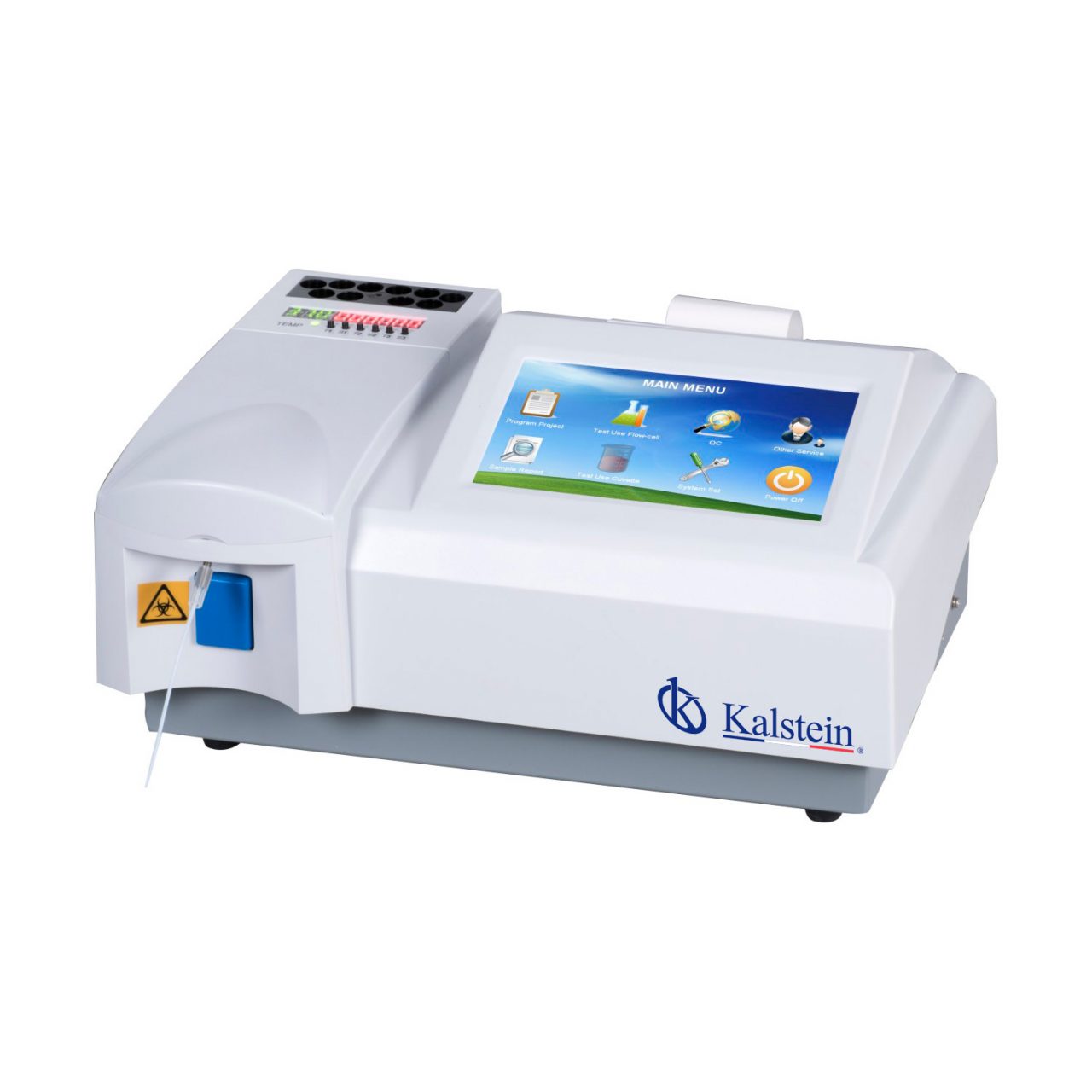The chemistry analyser is a clinical laboratory tool, designed to do blood tests, from 125 to 1600 photometric tests per hour. This equipment works mainly in clinical or hospital laboratories, its main function is to analyze the elements of a blood sample, to calculate the levels of triglycerides, cholesterol, proteins, among others.
In turn, it favors studies to analyze the metabolic balance of a person, with samples of urine or blood serum. In addition, it allows the analysis of animal samples.
This device is applied with photometric tests, in charge of measuring the concentrations of substances based on the color or enzymes present; after being subjected to chemical reactions.
Basic Functions of Clinical Chemistry Analyser
The analyzers operate in two main modes; the semi-automatic which has a reaction source linked to a software, which carries the temperature control. A shelf of reagents that is handled at a constant temperature of 2° to 8°C.
Similarly, by stirring water with a layer of Teflon, prevents contamination of the samples. Also, the sample needle works as a sensor, to establish the liquid level, anti-collision and real-time reagent volume measurement.
Finally, it has an autonomous cleaning system, making maintenance possible in all aspects. It should be noted that these analyzers are the most recommended in laboratories that do not handle a lot of tests per day; on the other hand, automatic analyzers support more. It should be taken into account that proper hygiene and handling of these devices can extend their useful life.
Clinical Chemistry Analyser Measurement Techniques
There are several analytical methods of measurement. They are divided into two categories, among them are optical techniques, and operate with:
- Colorimetry is the most common method, where the sample is mixed with the appropriate reagent, to cause a change that results in a color. The analyte group establishes the intensity of the color obtained.
- Photometry: A light is prepared on the sample with a suitable wave extension, while a photodetector, located on the other side of the sample, calculates the amount of light absorbed. It is directly related to the concentration of the analyte in the sample.
Electrochemical techniques:
- Direct potentiometry: the use of ion selective electrodes (ISE) are sensors prepared to stipulate the concentration of ions in a solution, calculating the flow of current through a selective ion film. This method is used to measure ions such as Na+, K+, CI- and Li+.
- Indirect potentiometry: This method also uses ion-selective electrodes. It results in high measurements, and is the most widely used in central laboratories. It requires prior dilution, unlike direct potentiometry, and its results are expressed in moles.
Benefits of using the Clinical Chemical Analyser
These kits are designed to address the common challenges of clinical laboratories. And in the hematological area, clinical chemistry analysers use fluorescent flow cytometry, providing the sensitivity needed to measure and differentiate cell types in samples of whole blood, and body fluids.
These units offer benefits, because they provide quick results, since once samples are extracted, there begins to be a rupture of the cell membrane of bacteria or cells, which causes the output of biological material, so the faster the samples are processed, the more representative the result is, obtained, therefore, are reached in less time and the procedures by their reduction of manual work of health personnel, avoid alterations in the result.
Kalstein Brand Chemistry Analysers
In this category, our users will find appropriate accessories for all laboratory equipment. This includes a wide selection of Clinical Chemistry Analysers, belonging to the YR series, which are discrete and fully automatic, the performance is Constant200T / H, likewise, they have a wavelength range: 340,40S, 450, Sl0, 546, 578, 630,7D0nm and the water consumption, SL is time.
For more information, we at Kalstein can offer you laboratory materials, and for this we invite you to review our catalog at HERE
We are manufacturers and we have the best advice, so that your purchase is the ideal and at favorable prices. For more information, visit our website at HERE

